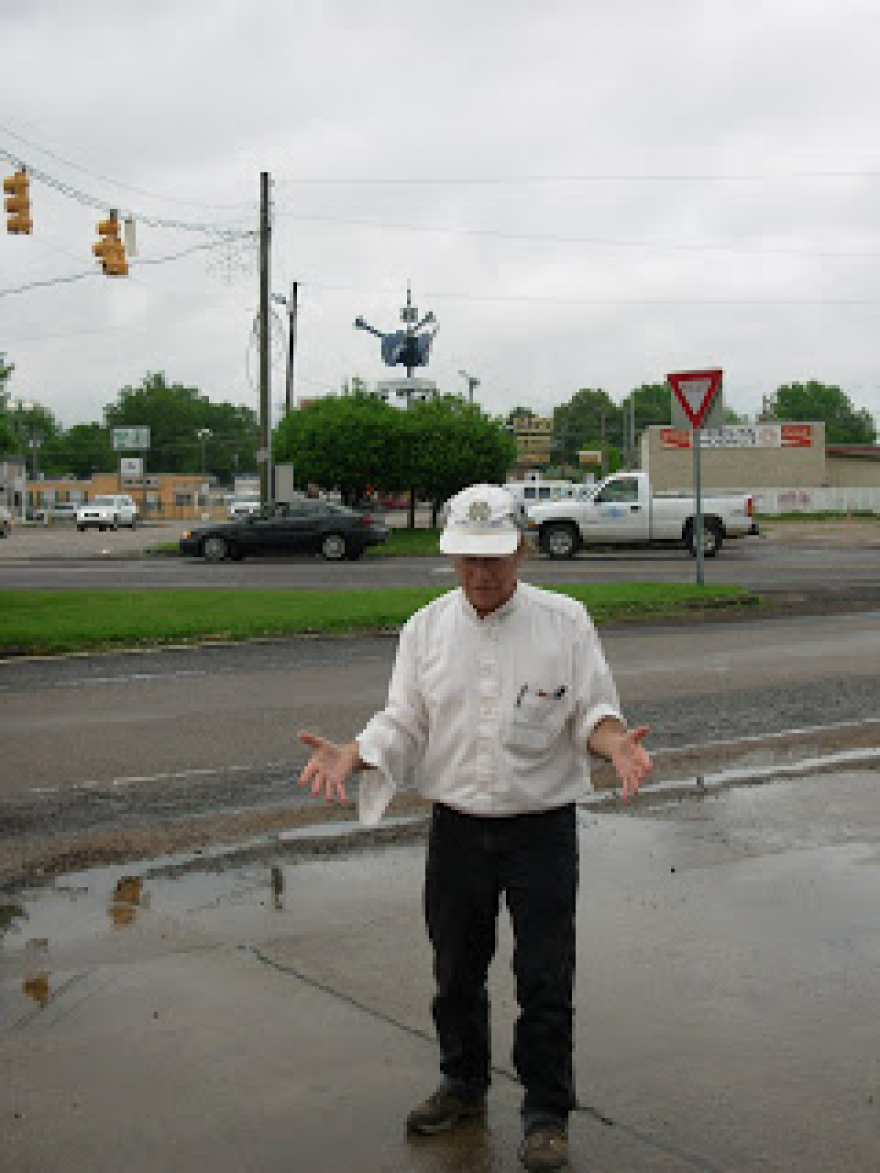FREEDOM SUMMER
I said good-bye to a bus full of students and two professors at 7:30 Tuesday morning. That’s May the eighteenth if you’re keeping track. Loaded with suitcases, water, doughnuts and curiosity, they were on their way to Nashville, Tennessee, on the first leg of a ten-day study tour of civil rights history sites in the south. We at IU South Bend call it the Freedom Summer tour, named after the 1964 Mississippi voter-registration project that culminated in a huge uproar at the Democratic Party convention that year at Atlantic City.
I accompanied two previous Freedom Summer tours: 2008’s and 2011’s. That’s a “three-beer” story if you’re ever interested in coaxing it out of me. The original idea was to meet people who made this history and see the places where they made it. These students will visit, as we visited, little towns and country jails in the Mississippi Delta, where voter registration workers were locked up and beaten by the law and the Klan. They’ll march over the Edmund Petttus Bridge in Selma, Alabama, where in 1965, John Lewis and marchers were met with billy clubs and gas wielded by a state troopers and possemen, led by local Sheriff Jim Clark, as they tried and ultimately succeeded in walking 50 miles to Montgomery, the capitol, to protest killings by hate groups. Best of all, the people they will meet are still “in the struggle,” so to speak, in places where people’s civil rights are still far from secure.
The civil rights movement was in full flower when I was in high school in Atlanta but I didn’t really join until I came to South Bend in 1965. Still, I followed those early events closely as a high school student. How could I not? They were all around me, and monopolized the news until the death of King and the Vietnam War drove civil rights from the headlines. I became enamored of the music of that movement, and particularly admired the Freedom Singers, a group who led the songs at many rallies in the south. They got everybody singing, and that became one of the things I resolved to do in my life—get everyone singing. I was in my own little heaven in Louisville, Kentucky, in Albany, Georgia, and in Mississippi in 2008 and 2011 when I met members of that group and we harmonized those still-relevant songs with voices that could still knock down the walls of Jericho. I mean, what beats singing with Freedom Singers Rutha Harris and Charles Sherrod in the Old Regular Baptist Church in Albany, chasing the skulking ghost of Jim Crow police chief Laurie Pritchett out of the shadows, or sitting with Hollis Watkins at his “welcome table” in Jackson, Mississippi, or swapping songs with activists Charles McLaurin and Margaret Block, rollicking on our bus in the heart of blues country. What’s more thrilling than shouting out “This Little Light of Mine,” and “We Shall Overcome,” while marching over the Pettus Bridge on the footsteps of Martin Luther King, of Ralph Abernathy, of John Lewis. I got to blow blues harp in a dive in Indianola, Mississippi, owned by B. B. King; and I stood on the very spot where Robert Johnson knelt on the “Crossroads” of U.S. Routes 49 and 61—Dylan’s famous “Highway 61,”—and I, too, dared the devil to come out and show me some blues licks.
Could be this year’s Freedom Summer students might return, as we did, as people anointed with the spirit to “keep on keepin’ on.” Previous class alumni raised money to found and restore the Civil Rights Heritage Center on South Bend’s Washington Street, wrote books and gathered local civil rights memorabilia, recorded oral histories from our area’s struggles, fought gun violence, and at least one of us is ready at the drop of a hat to sing “Ain’t Goin’ To Let Nobody Turn Me ‘Round.” For Michiana Chronicles, I’m David James.




